
5 Books for Readers Who Love Malcolm Gladwell
This content contains affiliate links. When you buy through these links, we may earn an affiliate commission.
Malcolm Gladwell’s newest book Talking to Strangers: What We Should Know About the People We Don’t Know just dropped and I have to say, it might be his best book yet. It is an incredible read that I highly recommend. I have read and loved all of his books and have listened to all four seasons of his highly successful podcast “Revisionist History.” In my opinion, the dude is a genius, and he has quickly become my favorite author. The way he takes microhistories and turns them into these mesmerizing stories is incredible.
But this got me thinking: If I (and others) love his works so much, why not let others know about other books and authors like Malcolm Gladwell? Surely if they loved his books, they would love books that are somewhat like his, right? So, in no particular order, here are five great reads that have that Gladwellian touch:
This New York Times bestseller is riveting and quite compelling. How many people do you know would infiltrate a dangerous gang so it could be studied and understood from a marginalized perspective? Not many, I’m guessing. Well, this is exactly what Sudhir Venkatesh did. His story garnered serious attention when it was first highlighted in Freakonomics. Gang Leader for a Day is the fascinating full story of how Sudhir Venkatesh managed to gain entrée into the gang, what he learned, and how his method revolutionized the academic establishment. He would befriend a gang leader named JT and spend the better part of the next decade inside the projects under JT’s protection, documenting what he saw there. Over the next seven years, Venkatesh observed JT and the rest of the gang as they operated their crack selling business, conducted PR within their community, and rose up or fell within the ranks of the gang’s complex organizational structure. This book is a must-read.
Racism is still alive! It has never gone away like some people would want you to believe. And it is no secret that people of color continue to be marginalized and incarcerated in high numbers. According to the Pew Research Center, at the end of 2017, federal and state prisons in the United States held about 475,900 inmates who were black. In The New Jim Crow, Alexander argues that we have not ended racial caste in America: we have simply redesigned it. Alexander shows that, by targeting black men and decimating communities of color, the U.S. criminal justice system functions as a contemporary system of racial control, even as it formally adheres to the principle of color blindness. This is a great read.
This New York Times bestseller is provocative and an excellent read. Adiche’s TEDx talk of the same name was much-admired and she has been heralded by President Barack Obama as “one of the world’s great contemporary writers.” Adichie offers readers a unique definition of feminism for the 21st century—one rooted in inclusion and awareness. She successfully answers the question: What does it mean to be a feminist today? Adichie’s examination of the world that women live in today highlights the many issues that have always negatively affected women: Blatant discrimination, marginalization, sexual exploitation and so much more. She explains why the gender divide is harmful for women and men alike. This must-read should leave many wondering why we aren’t all feminists. I highly recommend this one.
This is another great read that may have even inspired Gladwell to write Outliers: The Story of Success. Gladwell once told The New Yorker that Nassim Taleb “is to conventional Wall Street wisdom approximately what Martin Luther’s ninety-five theses were to the Catholic Church.” Fooled by Randomness is an investigation of opacity, luck, uncertainty, probability, human error, risk, and decision-making in a world we don’t understand. How does one perceive and grapple with luck? We always say things like “That was pure luck,” or “She/he is so lucky.” But do we ever stop to think about what luck is and how we actually deal with it in our lives, at work, while conducting business, etc.? Taleb seeks to answer these questions and many more. This book was named by Forbes as “one of the smartest books of all time.” This is another must-read.
I know this book has been on many “must-read” lists and is part of probably thousands of “To be Read” piles, but there is a reason for that. It is just that good. This book tells the true story of one of Bryan Stevenson’s first cases; a case that introduced him to Walter McMillan. Stevenson founded the Equal Justice Initiative, a legal practice dedicated to defending those most desperate and in need: the poor, the wrongly condemned, and women and children trapped in the farthest reaches of our criminal justice system. McMillan was sentenced to die for a murder he insisted he did not commit and Stevenson was drawn into a world he could never have imagined. This book is filled with conspiracy, legal issues, politics and ultimately transforms Stevenson’s understanding of mercy and justice forever.
Happy reading!
 Gang Leader for a Day: A Rogue Sociologist Takes to the Streets by Sudhir Venkatesh
Gang Leader for a Day: A Rogue Sociologist Takes to the Streets by Sudhir Venkatesh
This New York Times bestseller is riveting and quite compelling. How many people do you know would infiltrate a dangerous gang so it could be studied and understood from a marginalized perspective? Not many, I’m guessing. Well, this is exactly what Sudhir Venkatesh did. His story garnered serious attention when it was first highlighted in Freakonomics. Gang Leader for a Day is the fascinating full story of how Sudhir Venkatesh managed to gain entrée into the gang, what he learned, and how his method revolutionized the academic establishment. He would befriend a gang leader named JT and spend the better part of the next decade inside the projects under JT’s protection, documenting what he saw there. Over the next seven years, Venkatesh observed JT and the rest of the gang as they operated their crack selling business, conducted PR within their community, and rose up or fell within the ranks of the gang’s complex organizational structure. This book is a must-read.
 The New Jim Crow: Mass Incarceration in the Age of Colorblindness by Michelle Alexander
The New Jim Crow: Mass Incarceration in the Age of Colorblindness by Michelle Alexander
Racism is still alive! It has never gone away like some people would want you to believe. And it is no secret that people of color continue to be marginalized and incarcerated in high numbers. According to the Pew Research Center, at the end of 2017, federal and state prisons in the United States held about 475,900 inmates who were black. In The New Jim Crow, Alexander argues that we have not ended racial caste in America: we have simply redesigned it. Alexander shows that, by targeting black men and decimating communities of color, the U.S. criminal justice system functions as a contemporary system of racial control, even as it formally adheres to the principle of color blindness. This is a great read.
 We Should All Be Feminists by Chimamanda Ngozi Adichie
We Should All Be Feminists by Chimamanda Ngozi Adichie
This New York Times bestseller is provocative and an excellent read. Adiche’s TEDx talk of the same name was much-admired and she has been heralded by President Barack Obama as “one of the world’s great contemporary writers.” Adichie offers readers a unique definition of feminism for the 21st century—one rooted in inclusion and awareness. She successfully answers the question: What does it mean to be a feminist today? Adichie’s examination of the world that women live in today highlights the many issues that have always negatively affected women: Blatant discrimination, marginalization, sexual exploitation and so much more. She explains why the gender divide is harmful for women and men alike. This must-read should leave many wondering why we aren’t all feminists. I highly recommend this one.
 Fooled by Randomness: The Hidden Role of Chance in Life and in the Markets by Nassim Nicholas Taleb
Fooled by Randomness: The Hidden Role of Chance in Life and in the Markets by Nassim Nicholas Taleb
This is another great read that may have even inspired Gladwell to write Outliers: The Story of Success. Gladwell once told The New Yorker that Nassim Taleb “is to conventional Wall Street wisdom approximately what Martin Luther’s ninety-five theses were to the Catholic Church.” Fooled by Randomness is an investigation of opacity, luck, uncertainty, probability, human error, risk, and decision-making in a world we don’t understand. How does one perceive and grapple with luck? We always say things like “That was pure luck,” or “She/he is so lucky.” But do we ever stop to think about what luck is and how we actually deal with it in our lives, at work, while conducting business, etc.? Taleb seeks to answer these questions and many more. This book was named by Forbes as “one of the smartest books of all time.” This is another must-read.
 Just Mercy: A Story of Justice and Redemption by Bryan Stevenson
Just Mercy: A Story of Justice and Redemption by Bryan Stevenson
I know this book has been on many “must-read” lists and is part of probably thousands of “To be Read” piles, but there is a reason for that. It is just that good. This book tells the true story of one of Bryan Stevenson’s first cases; a case that introduced him to Walter McMillan. Stevenson founded the Equal Justice Initiative, a legal practice dedicated to defending those most desperate and in need: the poor, the wrongly condemned, and women and children trapped in the farthest reaches of our criminal justice system. McMillan was sentenced to die for a murder he insisted he did not commit and Stevenson was drawn into a world he could never have imagined. This book is filled with conspiracy, legal issues, politics and ultimately transforms Stevenson’s understanding of mercy and justice forever.
Happy reading!



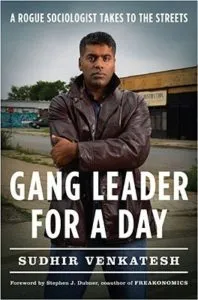 Gang Leader for a Day: A Rogue Sociologist Takes to the Streets
Gang Leader for a Day: A Rogue Sociologist Takes to the Streets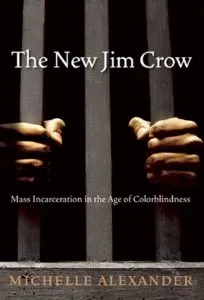
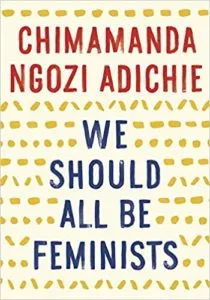
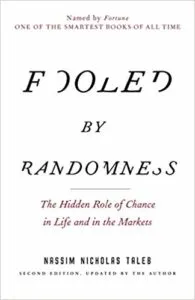 Fooled by Randomness: The Hidden Role of Chance in Life and in the Markets
Fooled by Randomness: The Hidden Role of Chance in Life and in the Markets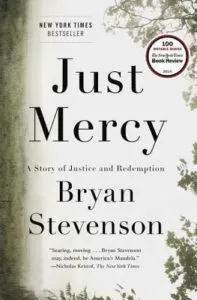 Just Mercy: A Story of Justice and Redemption
Just Mercy: A Story of Justice and Redemption











